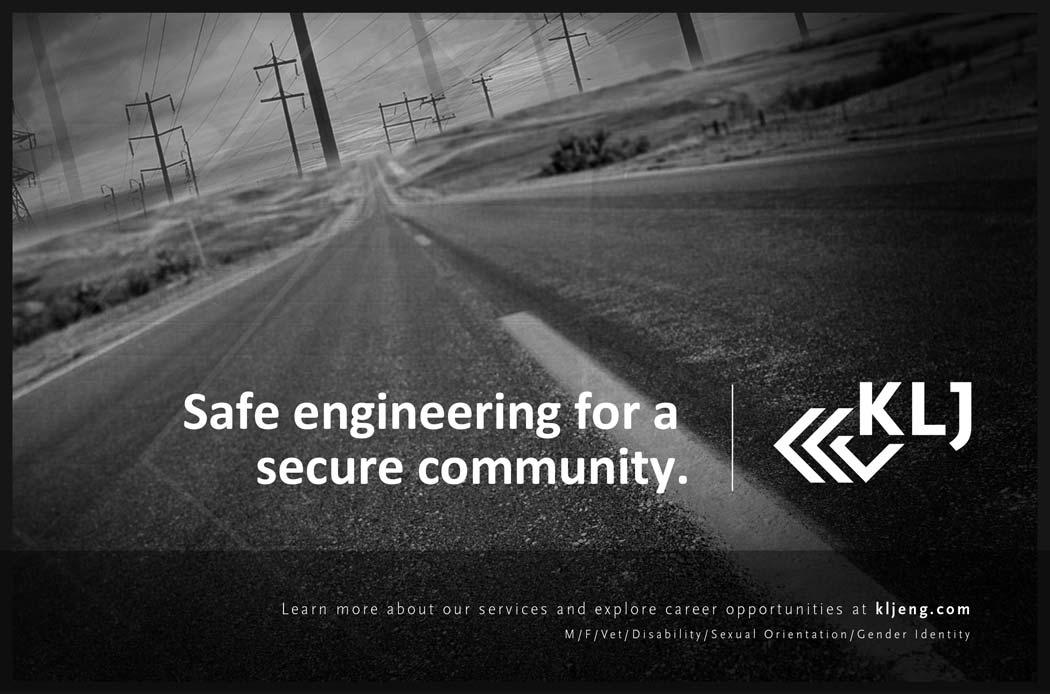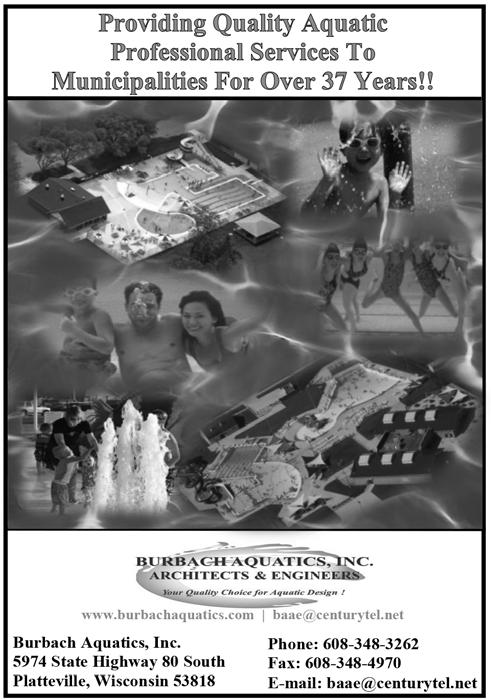
6 minute read
NLC Federal Advocacy Update
National League of Cities Federal Advocacy Update
NLC Urges House Action on Brownfields Reauthorization
Advertisement
Carolyn Berndt NLC urged House Energy and Commerce and Transportation and Infrastructure Committee leadership to develop and pass legislation reauthorizing and improving the U.S. EPA Brownfields program.
With the passage of a brownfields reauthorization bill in the Senate, attention now turns to the House where two committees have jurisdiction over the program. While there is broad bipartisan support for the program, and both committees have held hearings, neither has yet to draft a bill for consideration.
NLC supports the Senate version of the Brownfields bill, but is also asking Congress to go further in addressing local government liability concerns in acquiring contaminated properties where the local government had no role in creating the contamination. The current law creates a disincentive for local governments and is a barrier to the cleanup and productive reuse of brownfields properties in communities nationwide. In meetings with both Energy and Commerce and Transportation and Infrastructure Committee staff this week, it is clear that there is interest from both sides of the aisle in developing and advancing a bill this year that addresses many of the local government concerns.
House Poised to Act on Legislation to Address Opioid Epidemic
Yucel Ors The House Judiciary and the Energy and Commerce Committees marked up more than a dozen opioid-related bills. The package includes provisions to establish a grant program at the Department of Justice (DOJ) that can be used to develop alternatives to incarceration; train state and local public safety personnel on substance abuse disorder and mental illness; increase funding for mental health, drug abuse, and veteran’s courts; and raise the limit on the number of patients that doctors can treat with drugs to ease the symptoms of withdrawal.
The House package, however, is missing some key components that are in the Senate’s Comprehensive Addiction and Recovery Act of 2016 (CARA, S. 524), which
passed with NLC’s support on March 10. The missing components include the establishment of a grant program to develop community-based recovery services and new consumer education and awareness programs.
NLC will continue our outreach to key Representatives in the House and urge their support of additional funding for community-based recovery services and prevention education programs.
E-Fairness Headed to Supreme Court?
Carolyn Coleman In March 2015, Supreme Court Justice Anthony Kennedy wrote a concurring opinion stating that the “legal system should find an appropriate case for this Court to reexamine Quill.” A new challenge coming out of South Dakota might be just the case Justice Kennedy had in mind.
In Quill Corp. v. North Dakota, decided in 1992, the Supreme Court held that states cannot require retailers with no in-state physical presence to collect sales tax. Justice Kennedy criticized Quill in Direct Marketing Association v. Brohl for many of the same reasons the State and Local Legal Center stated in its amicus brief. Specifically, internet sales have risen astronomically since 1992 and states are unable to collect most taxes due on sales from out-of-state vendors.

While a number of state legislatures have considered or passed legislation requiring remote vendors to collect sales tax, South Dakota’s law is the first to generate a lawsuit. On April 28, South Dakota filed a declaratory judgment action asking a state circuit court to declare its law constitutional. The next day the American Catalog Mailers Association and Netchoice filed a declaratory judgment action asking for the opposite result.
South Dakota acknowledges that, for it to win, the circuit court will have to abrogate Quill v. North Dakota, a step that any lower court would be more than reticent to take. All lower courts are required to follow rulings of the United States Supreme Court.
Numerous features of the South Dakota law indicate it is fast-tracked for U.S. Supreme Court review. First, the law requires the circuit court to act on the state’s declaratory judgment “as expeditiously as possible.” Second, any appeal must only be made to the South Dakota Supreme Court, who must also hear the case “as expeditiously as possible.”

While the law is being litigated South Dakota cannot require out-of-state vendors to collect sales tax.
South Dakota may very well lose before both the state circuit court and the South Dakota Supreme Court. For U.S. Supreme Court review, four of the nine (eight) Supreme Court Justices must agree to hear the case. Five votes to win!
FCC Releases Final Lifeline Order
Angelina Panettieri The Federal Communications Commission (FCC) released final details of its modernization of the Lifeline program, nearly a month after its contentious vote on the matter. The Lifeline program is the FCC’s program to help make communications services more affordable for low-income consumers. NLC, along with cities around the nation, spoke out in support of the modernization order and its contribution to closing the digital divide between highand low-income households.
The final order expands the Lifeline program to include broadband subscriptions, beginning December 1, 2016. It also outlines a plan for a gradual phase-out of subsidies for telephone-only (versus bundled with broadband internet) service by 2021. Lifeline subsidy beneficiaries will receive a $9.25 per month subsidy for broadband service or a broadband/phone bundled subscription.
In addition, the final order changes the eligibility requirements for participants of the program: subsidy recipients must either meet the current program’s income threshold, or participate in other federal low-income programs, including Medicaid, Supplemental Nutrition Assistance Program, Supplemental Security Income, Federal Public Housing Assistance, or Veterans and Survivors Pension Benefit. Notably, participation in the Low-Income Home Energy Assistance Program, National School Lunch Program’s free lunch program, and Temporary Assistance for Needy Families program will no longer automatically qualify recipients to participate.
The final order also addresses concerns about waste, fraud, and abuse by establishing a national third-party verifier of eligibility for participation. Previously, eligibility verification was handled directly by phone companies, forcing consumers to provide the companies with personal income information, and increasing the chances of excess, inappropriate, or duplicate granting of Lifeline subsidies to households.
Reprinted from National League of Cities, www.nlc.org.

Election Signs Not Allowed in Right of Way
SD Municipal Attorneys' Association Meeting
The South Dakota Department of Transportation reminds the public that political campaign and ballot-issue signs cannot be placed on state highway rights of way.
“With the primary election coming up in June, election signs are showing up along the state’s roadways,” says Jason Humphrey, construction engineer for the DOT. “We’re asking everyone to pay attention to where they put the signs and make sure they are outside of the rights of way and in locations that will not create safety hazards or distract motorists.”
The use of right of way is reserved for official highway signage. All signs in the right of way that are not required for traffic control, as authorized by law (SDCL 31-28-14), are prohibited and will be removed. That includes both candidate and ballot-issue signs.
Municipal ordinances regulating placement and removal of campaign signs within towns and cities do not have precedence over state jurisdiction and supervision of state highway rights of way within municipalities.
What: Luncheon Meeting When: Thursday, June 23, 2016 12:00 p.m. to 1:00 p.m. Where: Ramkota Hotel, Sioux Falls
Visit www.sdmunicipalleague.org/sdmlevents for the agenda and registration.










